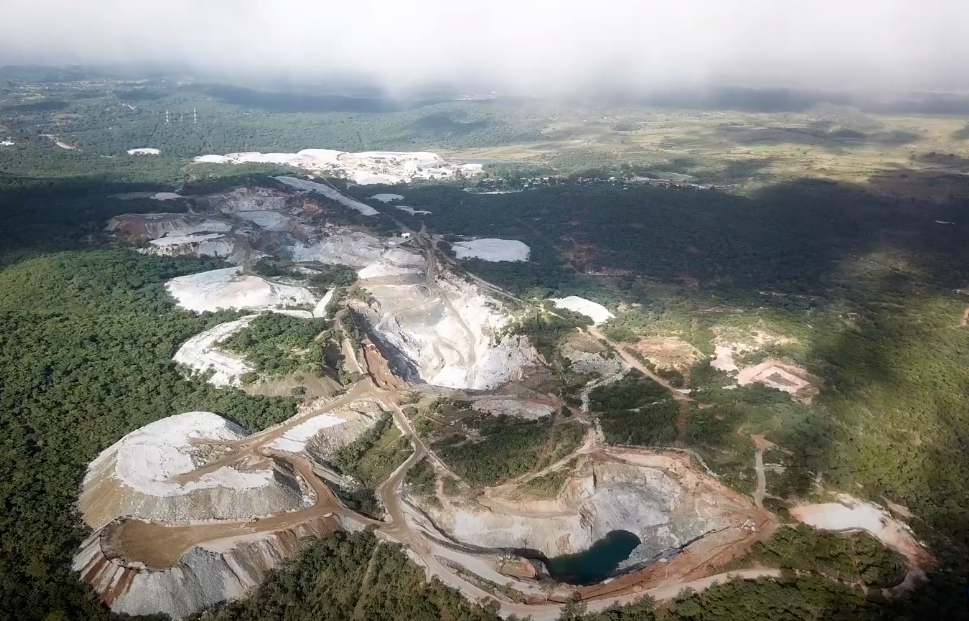Lithium mine project injects life to Buhera
FROM a distance, enticing smoke from the braai stands scattered around wafts through the vicinity. At a bar, scores of imbibers are on a drinking spree. Some are watching an English Premier League match and others are playing a game of pool.
The jovial scene emphasises the lively nature that pervades the Mukubu business centre popularly as paDoubt in Buhera North constituency.
It is the same scenario at Bhidhiri business centre where loud sungura music from Mark Ngwazi is playing from big speakers outside shop verandas.
Blissful customers are doing their shopping, as excitement reaches an enthusiastic crescendo.
The anticipation and enthusiasm have been brought by Chinese-owned Sabi Star Mine, which is mining lithium in one of Zimbabwe’s poorest districts.
The establishment of Sabi Star Mine in the drought-prone area, located in ecological region 5, has changed the lives of villagers from Mukwasi, Tagarira and Ngwazani, among others, through various developmental initiatives.
Officially opened in August 2023 by President Emmerson Mnangagwa, Sabi Star Mine has shown serious development intentions by implementing community development projects.
Most notable is the employment of many locals. According to Sabi Star Mine management locals constitute 95% of the employees at the lithium miner.
Having endured abandonment and the perils associated with unemployment and drought, the villagers have finally breathed a sigh of relief, as they strongly believe that lithium mining at Sabi Star Mine is a game changer.
“We are very happy that the mining company has managed to employ many of our locals. We appreciate this initiative because most of the youths and others who have not been doing anything have finally found jobs and they are now able to send children to school,” said headman Mukwasi in a recent interview.
“Generally, there have been major positive changes in terms of lifestyles. Most of the villagers have been very poor and neglected, but as of now I can say we are seeing some great changes in our livelihoods. We want to thank the mine for initiating such projects that have changed our lives. We hope the mine will continue doing that and do even more to empower locals.”
Mukwasi said the company also donated stationery to Mukwasi Primary and Secondary schools, a major boost for learners.
“Most parents from the village had no capacity to buy the books, but now the availability of books will improve the quality of education for our children,” he said.
A shop owner at Mukubu business centre, Hebert Mavangwe, said there had been a business boom, as many villagers now have disposable income.
“I can confirm that the arrival of Sabi Star Mine in our area has been a blessing because my business is booming. Many of the villagers here are employed at the mine and they are now able to buy groceries and other commodities,” said Mavangwe.
“I have expanded my business due to high demand. I have since employed two other employees to sustain the huge demand. The business centre was dead, but it is now revived because there are more shops full of stocks and making profits.”
Simon Chikunda, a bar owner said: “As you can see for yourself the centre is a hive of activity. The opening of this mine has also opened great opportunities for us as businesspeople. The money is circulating, and it is good for the community. Sales have been good of late, and this is what it should be.”
The Gaza- Sabi Star road that had remained almost impassable for years has been rehabilitated into a well refurbished highway.
“My business is booming. I am a taxi driver and we are happy that the new road has given us business,” said Irvine Gumbo, a mushikashika (pirate taxi) driver.
Many transport operators, who were shunning the road are now back plying the route.
Buhera Residents Network Trust chairperson Leonard Mabasa said there were some developmental projects done by the company that had seen members of the community benefiting.
“The mine so far has constructed solar-powered boreholes at six schools. We have also seen the rehabilitation of the Gaza–Sabi Star gravel main road, which is well-maintained. A water bowser is regularly used to suppress dust. The mine has also indicated that this road will be tarred very soon,” he said.
“The mine has also engaged the members of the community to work on the modalities to electrify homesteads. There has been the construction of Mukubu Clinic and it is expected to be officially opened soon,” said Mabasa.
He said, while Sabi Star Mine had been doing commendable things in the area, there are some issues that needed to be resolved.
“There is a problem of dust and noise caused by the heavy-duty trucks within the mine that has affected schoolchildren at the nearby schools. We feel that the mine must have dust and noise suppression measures in place so that public health is not compromised,” Mabasa said.
He said villagers on the western side of the mine were enduring odour from chemicals dumped in a dam.
Mabasa said there was need to address challenges affecting relocated people in Murambinda, who were removed to pave way for the mine.
“The relocated people were not compensated. The families are crowded and are failing to cope with fast urban life,” he said.
Centre for Research and Development director James Mupfumi said while there were corporate social responsibility (CSR) programmes underway, the relocation process was flawed.
“The relocation process was flawed, divisive and led to victims losing livelihoods and compensation. The little CSR being done by Sabi Star Mine is a non-event because it is not backed by a binding community development agreement that is inclusive and long lasting,” said Mupfumi.
Community leaders and villagers have said the mining project is a motivation to many.
The success it has brought so far shines everyday as the beneficiaries have become a light for others in this long-forgotten community.-newsday









